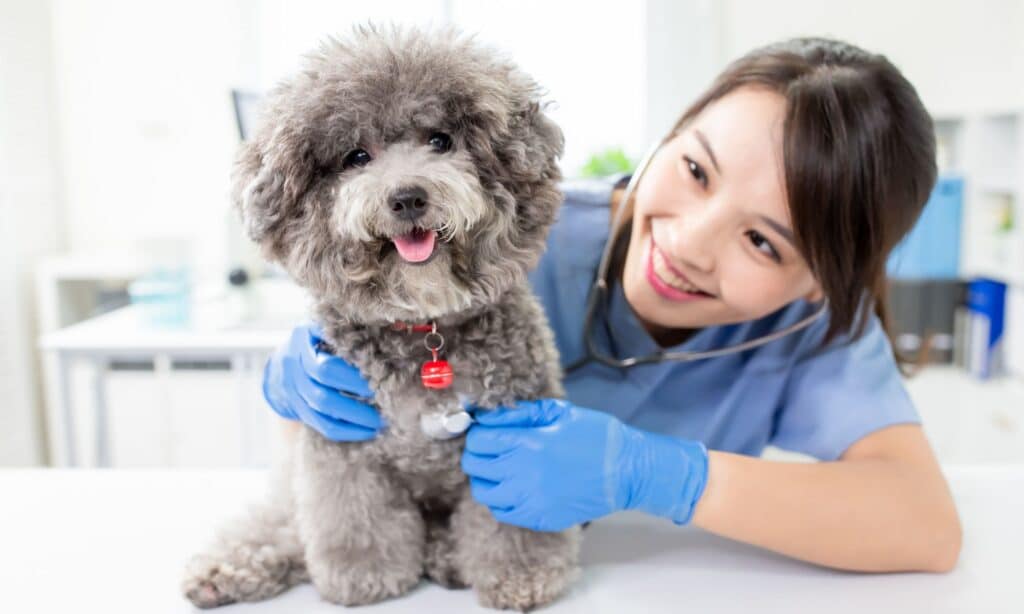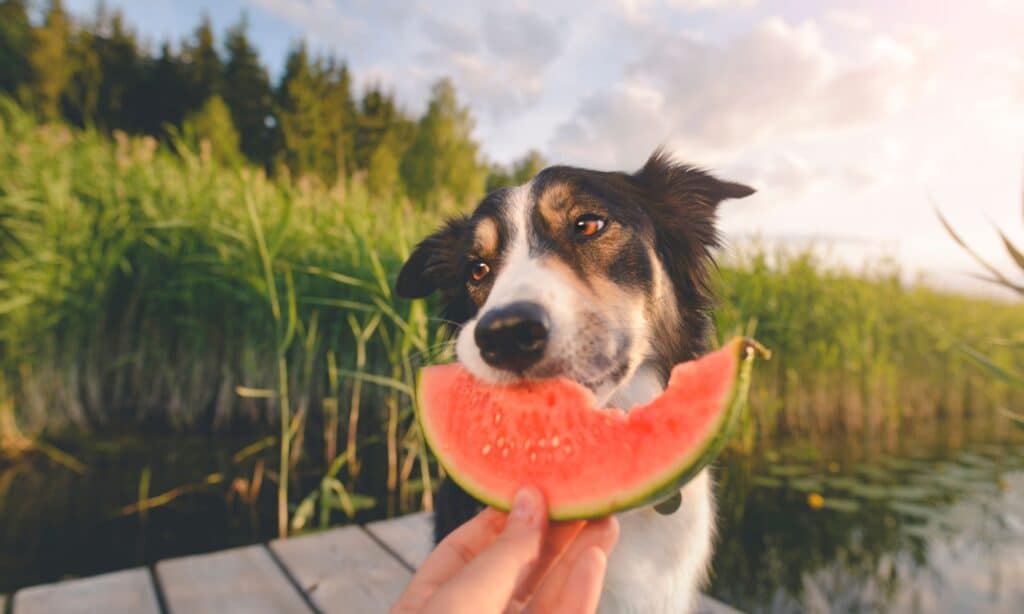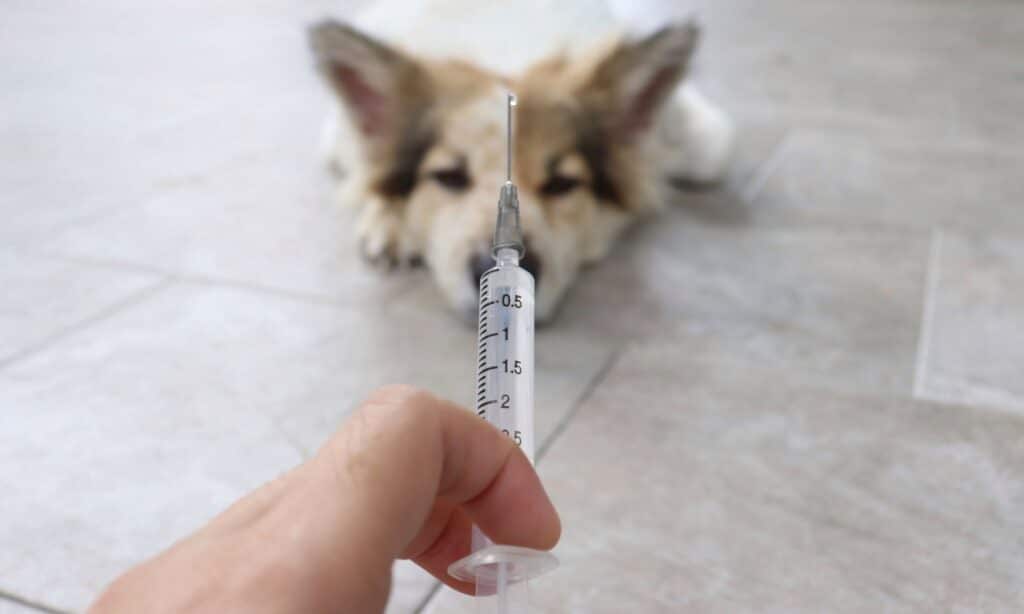“This post contains affiliate links, and I will be compensated if you make a purchase after clicking on my links.”

Dog pregnancy, also called gestation, happens for about 63 days. Unlike humans, dogs cannot take a pregnancy test to know whether they are pregnant. Diagnostic testing is the most reliable method of determining whether a dog is pregnant. Given that each method of detecting a dog’s pregnancy is time-sensitive, you should let your veterinarian know precisely when the dog mated.
In addition, there are signs and symptoms you can watch out for to determine if your dog is pregnant. Some dogs exhibit signs of increased appetite, a swollen belly, irritability and an increase in nipple size.
Once you’ve confirmed that your dog is pregnant, there are a few things you should do to keep her healthy throughout. It’s essential that you take care of pregnant dogs for their pups’ health and nourishment.

Exercise
Some veterinarians suggest that restricting vigorous exercise during the first two weeks of pregnancy would improve the implantation of the embryos if you’re attempting to breed your dog. Normal activity is then allowed until your dog’s belly enlarges. Make sure she exclusively exercises inside to avoid picking up illnesses that might be harmful to her health and the health of the puppies. Additionally, it will reduce her exposure to canine herpes, a disease that leads to stillborn puppies.

Vet Visit
A pregnancy examination and updated immunizations are required prior to breeding your dog. It is recommended that you visit the vet frequently during this pregnancy. After confirming that your dog is pregnant, the veterinarian will check her for any mechanical or anatomical issues that can hinder them from having a normal whelped litter. This time would also be great to talk about prenatal planning, including whether a cesarean delivery should be thought about and booked in advance. If your dog is found to be pregnant during the examination, and if the pregnancy was an accident, it is also a good chance to talk about future precautions, such as spaying, to avoid any more surprise litters. Additionally, you should ask the vet for advice on what to do in case of an emergency in the last stages of pregnancy.

Nutrition
Make sure your dog gets the right nutrition while she is pregnant. If she is currently eating quality dog food, there may not be any nutritional adjustments required during the first two-thirds of pregnancy, unless the doctor says so. Be aware that giving your dog too much food will hurt her. It is advised that you progressively increase food consumption as she gains weight in the last weeks of pregnancy until she eats 30%–50% more than usual. To prevent pain, feed her throughout the day in little, regular meals as opposed to one huge one.

Treatments
It is not possible to apply at-home flea, worm, and parasite treatments to pregnant dogs without first consulting a veterinarian. The unborn puppies can be protected by avoiding drugs as much as possible, as there are few treatments available for pregnant dogs. Certain therapies, such as continuous heartworm preventive medicine, are safe for dogs throughout pregnancy. All heartworm medications are safe to use on pregnant dogs. To prevent exposure, it’s crucial to give several roundworm and hookworm treatments to newborn puppies. But not all flea medications for dogs during pregnancy are safe.
Dogs and their owners may experience stress during pregnancy, but this doesn’t have to be the case. You will be better equipped to care for your dog if you are more informed about dog pregnancy in advance. Consult a veterinarian for additional information about it.

















